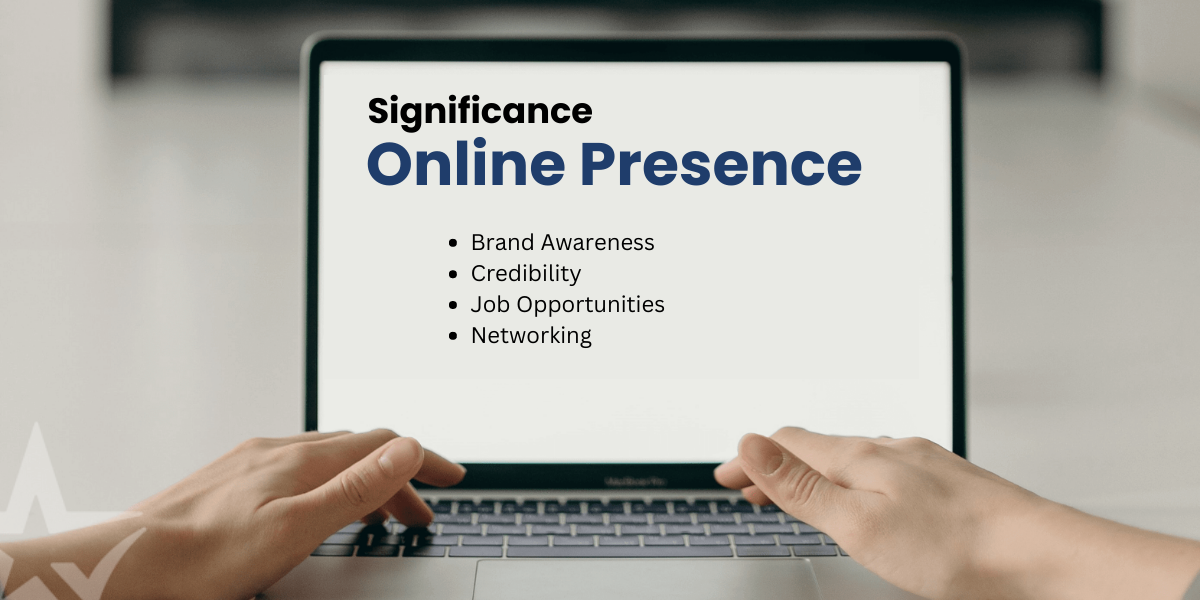Online presence has become an essential part of our lives in the digital age. Everyone, from individuals to businesses, is attempting to create and manage their online identity. But what is online presence, and how are identities created? In this article, we’ll look into these questions and see how important online presence is in today’s world.
Defining Online Presence
The existence of an individual or a business on the internet is referred to as an online presence. It includes all of one’s digital footprints on various online platforms such as social media, blogs, websites, and forums. It represents one’s identity in the virtual world.
Online Presence and How Are Identities Created?
The term “online presence” first appeared in the 1980s, when the internet was still in its infancy. Initially, an online presence was limited to individuals with internet access and the technical knowledge to create and manage websites.
With the introduction of social media in the early 2000s, the concept of Online Presence and How Are Identities Created began to evolve rapidly. Individuals and businesses could create profiles and interact with others on social media platforms such as MySpace, LinkedIn, and Facebook. This gave rise to the concept of online identity, which was a social media reputation management of an individual’s or business’s personality.
As social media platforms evolved, businesses realized the value of having a strong Online Presence and How Are Identities Created in order to connect with their customers and raise brand awareness. Businesses now have a Online Presence and How Are Identities Created on multiple social media platforms in order to engage with their audience and build their brand reputation.
Related Post – How to find someone with no online presence?
The Significance of Online Presence

Our online presence has become an important part of our lives, and it is critical that we understand its significance. Here are some of the reasons why having a strong online presence is important:
Brand Awareness
Businesses must have an online presence in order to build brand awareness. It enables them to connect with their customers and reach a larger audience.
Credibility
A strong online presence can help businesses establish credibility and build trust with their audience. This can result in increased sales and customer loyalty.
Job Opportunities
Individuals, as well as businesses, must have an online presence. Having a strong online presence can aid in job searches and open doors to new opportunities.
Networking
Individuals and businesses with an online presence can connect with others in their industry and build relationships. This can open up new possibilities and collaborations.
Methods to Create Online Identities:
Social media
Popular social media platforms for creating and managing online identities include Facebook, Twitter, LinkedIn, and Instagram. Individuals and businesses can use these platforms to share content, connect with others, and engage with their audience.
Website
A website is a necessary tool for developing a strong online presence. It enables businesses to highlight their products and services, establish credibility, and provide valuable information to potential customers.
Blogging
Blogging is a powerful tool for establishing expertise and thought leadership in a specific industry. Individuals and businesses can build a loyal audience and establish themselves as a trusted source of information by consistently producing high-quality content.
Online directories
Listing a business on online directories like Yelp, Google My Business, and Angie’s List can help it gain visibility and credibility.
Online reviews
Online reviews are extremely important in shaping an individual’s or business’s online reputation. Positive reviews can aid in the development of trust and credibility, whereas negative reviews can have the opposite effect.
Managing Online Presence: Best Practices
Consistency
When it comes to creating and managing online identity, consistency is essential. To ensure brand recognition and avoid confusion, use the same profile picture, handle negative publicity, and bio across all platforms.
Engage with followers
Engaging with followers on social media and other platforms can help to build a loyal audience and establish trust. Responding to comments and messages in a timely and professional manner can also aid in the prevention of negative feedback.
Monitor online reputation
Monitoring your online reputation on a regular basis can help you catch and address negative feedback before it becomes a bigger problem.
Protect personal information
Protecting personal information is crucial in maintaining online privacy and security. This includes using strong passwords, enabling two-factor authentication, and avoiding sharing sensitive information online.
Conclusion
To summarise, online presence has become an essential part of our lives, and it is critical to comprehend its significance. Having a strong online presence is critical for building credibility and brand awareness and creating new opportunities for everyone, from businesses to individuals. Managing an online presence takes a lot of time and effort, but with the right strategy and approach, anyone can effectively build and manage their online identity.


